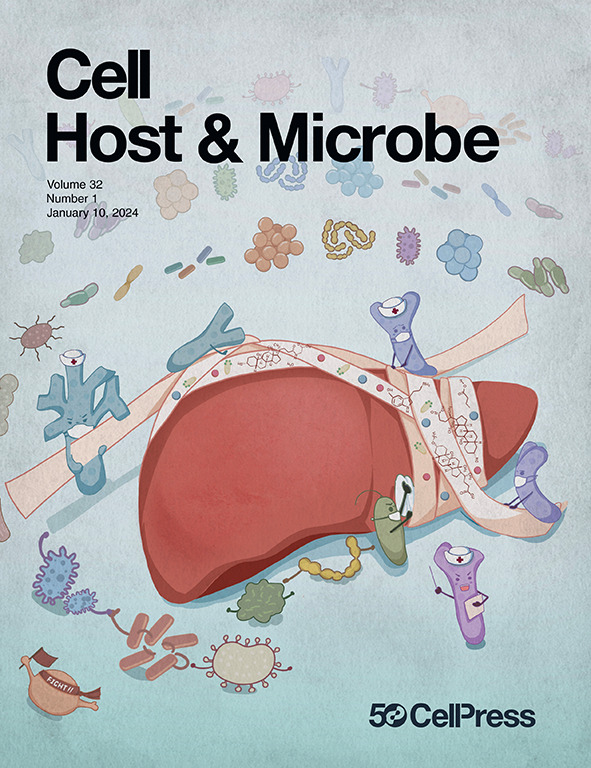Microbiota-derived urocanic acid triggered bytyrosine kinase inhibitors potentiates cancer immunotherapy efficacy
IF 18.7
1区 医学
Q1 MICROBIOLOGY
引用次数: 0
Abstract
Interactions between the host and the gut microbiota influence cancer progression and treatment responses. While the combination of tyrosine kinase inhibitors (TKIs) and immune checkpoint blockade (ICB) has improved outcomes, some cancer patients still have poor responses. The underlying mediators of this heterogeneity remain unclear. Here, we demonstrate that TKIs potentiate the immunotherapy response by increasing the abundance of Muribaculum and its metabolite, urocanic acid (UCA), which reduces myeloid-derived suppressor cell (MDSC) recruitment via the CXCL1-CXCR2 axis by inhibiting p65 in tumor vascular endothelial cells. Mechanistically, UCA selectively binds to the aspartic acid 31 residue of IκBα and suppresses its phosphorylation at serine 32. Compared with non-responders, clinical ICB responders present a higher UCA concentration and a greater level of Muribaculum gordoncarteri in feces, indicating both as potential predictive biomarkers for treatment response. Collectively, our findings reveal and highlight the important role of the gut microbial metabolite UCA in response to ICB.

微生物源性尿尿酸触发的酪氨酸激酶抑制剂增强了癌症免疫治疗的疗效
宿主和肠道微生物群之间的相互作用影响癌症的进展和治疗反应。虽然酪氨酸激酶抑制剂(TKIs)和免疫检查点阻断(ICB)的联合治疗改善了结果,但一些癌症患者的反应仍然很差。这种异质性的潜在中介因素尚不清楚。在这里,我们证明TKIs通过增加Muribaculum及其代谢物尿酸(UCA)的丰度来增强免疫治疗反应,尿酸通过抑制肿瘤血管内皮细胞中的p65,通过CXCL1-CXCR2轴减少髓源性抑制细胞(MDSC)的募集。在机制上,UCA选择性地结合IκBα的天冬氨酸31残基并抑制其丝氨酸32的磷酸化。与无应答者相比,临床ICB应答者的粪便中UCA浓度和Muribaculum gordoncarteri水平更高,表明两者都是治疗应答的潜在预测性生物标志物。总之,我们的研究结果揭示并强调了肠道微生物代谢物UCA在ICB反应中的重要作用。
本文章由计算机程序翻译,如有差异,请以英文原文为准。
求助全文
约1分钟内获得全文
求助全文
来源期刊

Cell host & microbe
生物-微生物学
CiteScore
45.10
自引率
1.70%
发文量
201
审稿时长
4-8 weeks
期刊介绍:
Cell Host & Microbe is a scientific journal that was launched in March 2007. The journal aims to provide a platform for scientists to exchange ideas and concepts related to the study of microbes and their interaction with host organisms at a molecular, cellular, and immune level. It publishes novel findings on a wide range of microorganisms including bacteria, fungi, parasites, and viruses. The journal focuses on the interface between the microbe and its host, whether the host is a vertebrate, invertebrate, or plant, and whether the microbe is pathogenic, non-pathogenic, or commensal. The integrated study of microbes and their interactions with each other, their host, and the cellular environment they inhabit is a unifying theme of the journal. The published work in Cell Host & Microbe is expected to be of exceptional significance within its field and also of interest to researchers in other areas. In addition to primary research articles, the journal features expert analysis, commentary, and reviews on current topics of interest in the field.
 求助内容:
求助内容: 应助结果提醒方式:
应助结果提醒方式:


